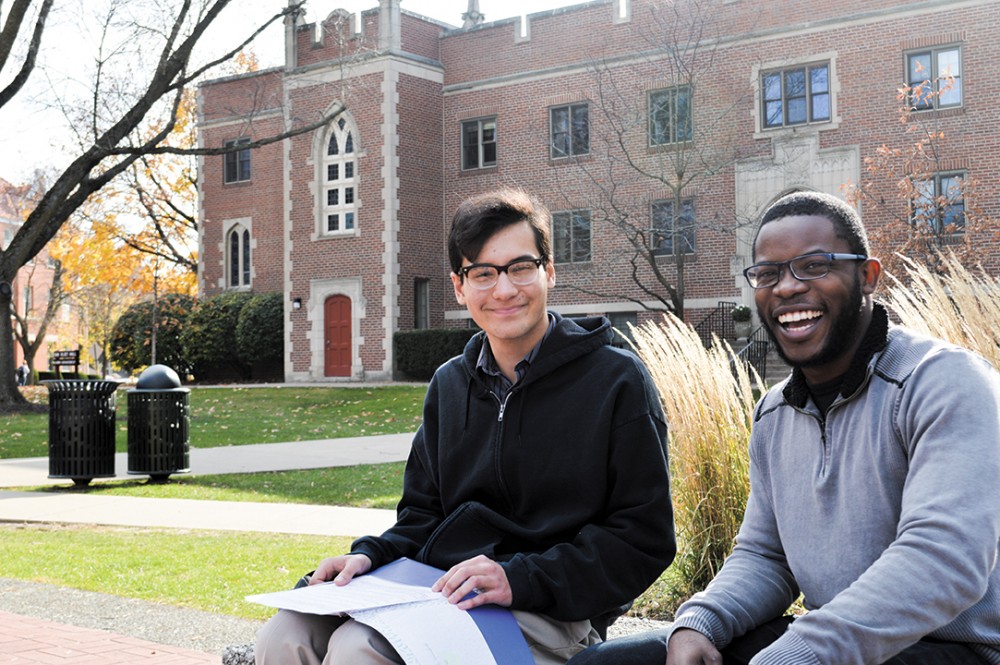Recidivism & Barriers to Success

Cambridge, Mass., June 28, 2021—A team of students from MIT has worked with the Community Foundation of Greater Dubuque on a research project seeking to identify and address the barriers that prevent previously incarcerated individuals in the region from finding employment. Of particular focus was exploring ways to reduce recidivism along with a recognition of the racial disparities in arrest and incarceration rates. A secondary component of the project focused on the expansion of a workforce pipeline to assist employers in filling open positions.
A new report based on the collaboration identifies employment barriers in the Dubuque region along with nine potential solutions. These include:
- Increasing the capacity of brain health and substance use service providers to treat formerly incarcerated individuals;
- Advocating for more affordable housing that can be inhabited post-release; and
- Establishing educational programming for human resource managers and company executives to shift mindsets and increase employment opportunities.
The research team looked closely at local programs and organizations serving formerly incarcerated residents, including the Fountain of Youth, which works to end the cycle of generational poverty.
The MIT students are enrolled in USA Lab, an Action Learning course at MIT Sloan School of Management whose goal is to deepen graduate students’ understanding of America’s diverse economic, cultural, and social issues through collaboration and working on-site with community host organizations in rural and small-town settings to uncover solutions together.
“We are truly honored to once again host a USA Lab project with a team of students from MIT Sloan,” said Nancy Van Milligan, President and CEO of the Community Foundation. “As an organization, our goal is to develop systemic solutions to community challenges. The research, insights, and fresh perspective that these students bring supports important work in building a strong, thriving Dubuque region.”
Due to the pandemic, USA Lab, first launched in 2018, worked with the Community Foundation virtually. The USA Lab team members are Austin de Maillé, MIT Leaders for Global Operations ’22; Noah McDaniel, MIT Master of City Planning ’21; Ale Rigobon, MIT Sloan MBA ’22 and Master of Public Administration ‘23 at the Harvard Kennedy School); and Chavie Sharfman, MIT Sloan MBA ’22.
Established in 2002, the Community Foundation convenes and collaborates with community members to improve the lives of their neighbors and address Greater Dubuque’s most pressing needs. This is the fourth USA Lab project, and the second held virtually, in which the Community Foundation served as a host for MIT student teams. Together, these four research efforts have focused on building an inclusive, equitable workforce pipeline to strengthen Dubuque’s economy and increase employment for under-represented populations in the workforce. Earlier projects looked at increasing access to affordable, quality child care; improving access to resources and jobs for immigrants; and building career pipelines for low-income and minority residents.
“Working with the Community Foundation of Greater Dubuque was an eye-opening experience,” said MIT Sloan MBA Austin de Maille. “Our team dove into the systemic issues of mass incarceration, recidivism, and employment discrimination—areas we had minimal exposure to before USA Lab. Throughout the semester, we co-created alongside previously incarcerated individuals and interviewed over 40 key community stakeholders to create a roadmap of solutions that we hope will have a meaningful impact on the community”
Launched in 2018, the creation of USA Lab, whose formal name is USA Lab: Bridging the American Divides, was motivated by concern about America's deep divides—economic, cultural, social and geographic—and a determination to better understand the diversity of America's communities. Students conduct fieldwork with organizations in rural regions and small cities across the US, working with community partners who are dynamic and effective local leaders. Both in class and through fieldwork, student teams work on well-defined projects that contribute to strengthening the social and economic fabric of the host communities. The host organizations are innovative local nonprofit and government organizations.
The course was developed through a collaboration involving MIT Sloan’s Good Companies, Good Jobs Initiative and Action Learning program; and the MIT Mens et Manus America Initiative.
“USA Lab is designed to benefit both MIT students and the community organizations that host them,” says Barbara Dyer, Senior Lecturer at MIT Sloan and Executive Director of the School’s Good Companies, Good Jobs Initiative. “Host organizations gain fresh insights on pressing issues facing their communities, and students hone critical skills such as impact investing, market analysis, strategy development, and empathetic listening, all of which make them better business leaders.”
This year’s other USA Lab projects are taking place in Maine, Minnesota, Florida, Iowa, and Kansas. USA Lab was among ten higher education courses nationwide honored with the Aspen Institute’s 2019 Ideas Worth Teaching Award.
The MIT Sloan School of Management is where smart, independent leaders come together to solve problems, create new organizations, and improve the world.
For further information, contact:
Patricia Favreau
Associate Director of Media Relations
pfavreau@mit.edu
or
Jeff Danna
Communications Manager, Community Foundation of Greater Dubuque
563-588-2700
jeff@dbqfoundation.org